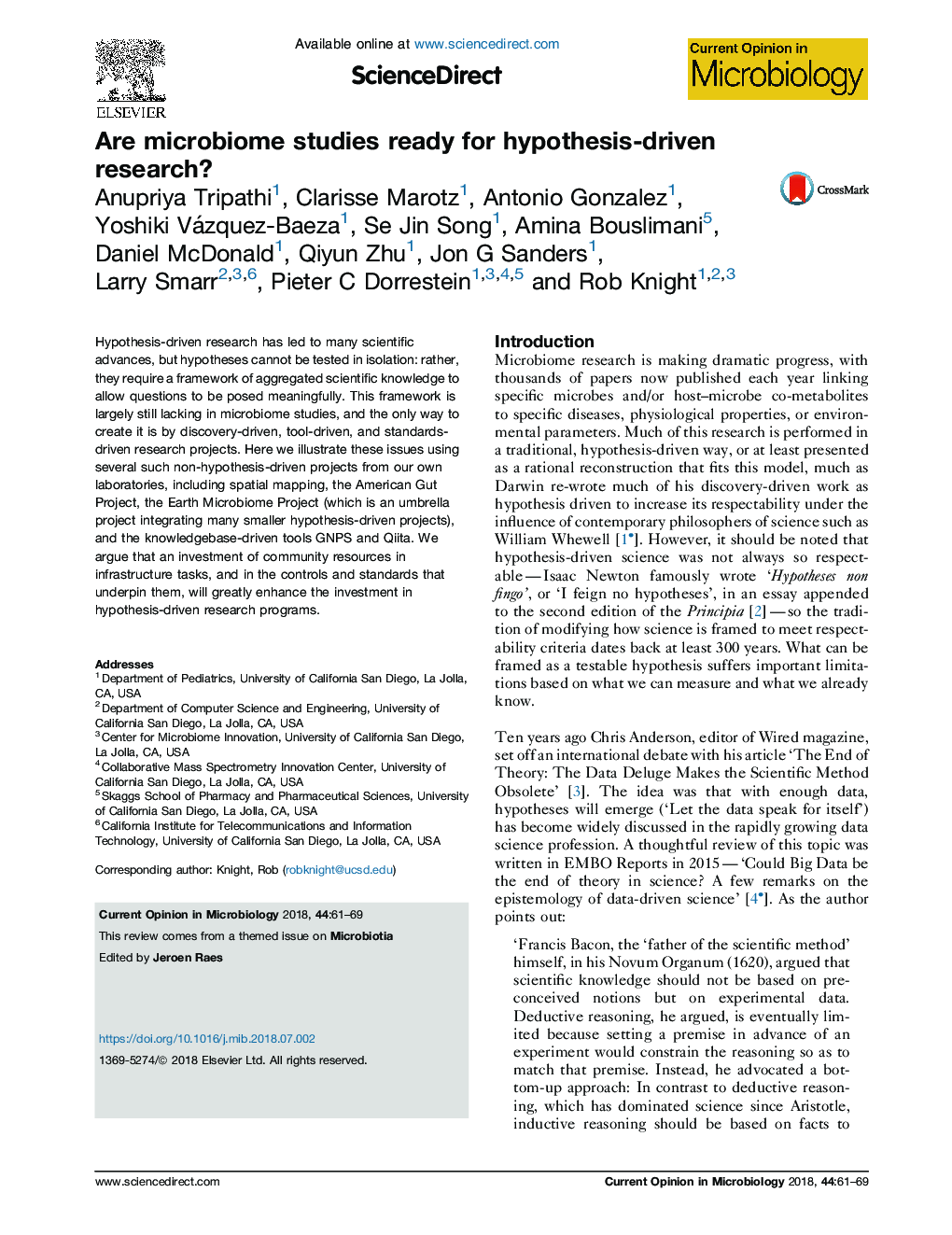| Article ID | Journal | Published Year | Pages | File Type |
|---|---|---|---|---|
| 11033624 | Current Opinion in Microbiology | 2018 | 9 Pages |
Abstract
Hypothesis-driven research has led to many scientific advances, but hypotheses cannot be tested in isolation: rather, they require a framework of aggregated scientific knowledge to allow questions to be posed meaningfully. This framework is largely still lacking in microbiome studies, and the only way to create it is by discovery-driven, tool-driven, and standards-driven research projects. Here we illustrate these issues using several such non-hypothesis-driven projects from our own laboratories, including spatial mapping, the American Gut Project, the Earth Microbiome Project (which is an umbrella project integrating many smaller hypothesis-driven projects), and the knowledgebase-driven tools GNPS and Qiita. We argue that an investment of community resources in infrastructure tasks, and in the controls and standards that underpin them, will greatly enhance the investment in hypothesis-driven research programs.
Related Topics
Life Sciences
Immunology and Microbiology
Microbiology
Authors
Anupriya Tripathi, Clarisse Marotz, Antonio Gonzalez, Yoshiki Vázquez-Baeza, Se Jin Song, Amina Bouslimani, Daniel McDonald, Qiyun Zhu, Jon G Sanders, Larry Smarr, Pieter C Dorrestein, Rob Knight,
